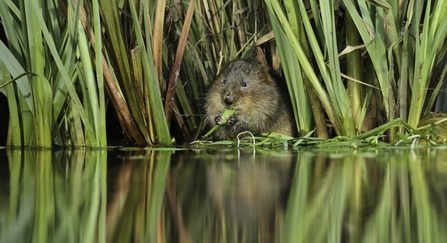In a ‘Brexit Bonus’ for housing developers, Rishi Sunak’s Government yesterday announced its plans to weaken the rules that prevent pollution of some of our most important wildlife sites.
Housebuilding adds to the nutrient pollution already affecting our rivers and coasts – lots of extra people flushing toilets means lots of extra sewage – and current legislation requires permission to be refused when a development would add even more pollution on top.
But claims that these rules created a ‘housing moratorium’ are disingenuous. Government, Local Authorities and others have quickly established schemes that allow developers to pay to reduce other sources of water pollution locally, meaning that on balance, the development would be ‘nutrient-neutral’. This has meant planning permission could be granted, safe in the knowledge that, overall, the development would not make pollution any worse.
But now these protections are set to be scrapped. Government is hoping that a package of pollution controls will be enough to ward off public criticism. But does the Government’s new offer add up?
What’s going?
Government will use the Levelling Up Bill, currently passing through Parliament, to alter the Habitats Regulations (the rules that protect internationally-important wildlife sites including rivers), dictating that planning authorities, when considering planning applications, must now ‘assume that nutrients in urban waste water from the potential development… will not adversely affect the relevant site.’ This means that the requirement to offset wastewater pollution will no longer need to be applied. Housebuilders complained that pollution-limiting requirements were ‘costly and time-consuming’, despite the success of schemes which saw farm pollution reduced, or wetlands created to buffer and filter pollution to offset that from new development.
What will happen instead?
Under these changes, instead of making developers pay to offset their pollution, eating into their profits, Government will increase funding to the nutrient mitigation scheme run by Natural England - meaning that taxpayers rather than builders will pay to prevent pollution. They say the funds will offset the pollution from ‘up to 100,000 homes between now and 2030’, but don’t mention how many more might be built, with no pollution offsets in place.
There are of course bigger polluters of our waterways than housebuilders – such as water companies and agriculture – but does that mean housebuilders should be allowed to pollute with impunity?
What else have Government promised?
Government rightly point out that the main problems faced by our waters are pollution from farms and from sewage (though of course the latter is not created out of thin air by water companies, but originates from – oh yes – housing…). That aside, they say tackling these main sources will mean that new homes are no longer pushing our nature sites over the limit. In addition to (taxpayers) funding the offset scheme, the Government also propose a package of measures to tackle these underlying failures:
-
Requiring water companies to upgrade wastewater treatment works to the highest technical standards by 2030 – though this too will be funded by society, via water bills, and will leave sites under-protected until then.
-
Tackling farm pollution, by providing funding for improved slurry storage and land management practices, and conducting 4,000 farm inspections a year.
-
Developing ‘Protected Sites Strategies’ - plans to restore habitats and species in the areas most acutely affected, by taking action to reduce pollution at source.


